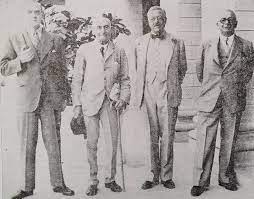The Cabinet Mission was a British delegation that was sent to India in 1946 to negotiate with the Indian National Congress and the Muslim League on the transfer of power from British rule to Indian self-governance. The mission was an important milestone in India’s struggle for independence and ultimately led to the creation of two separate nations, India and Pakistan. In this article, we will take a closer look at the Cabinet Mission and its impact on Indian history.

Table of Contents
Background of Cabinet Mission
The Cabinet Mission was formed in 1946 by the British government, led by Prime Minister Clement Attlee, to negotiate the transfer of power to India. The mission was made up of three British cabinet ministers, Lord Pethick-Lawrence, Sir Stafford Cripps, and A.V. Alexander. Their goal was to negotiate with the Indian National Congress and the Muslim League on a plan for self-governance for India.
Negotiations
The negotiations between the Cabinet Mission and the Indian political leaders were long and difficult. The Congress Party, led by Jawaharlal Nehru, wanted a united India with a strong central government, while the Muslim League, led by Mohammad Ali Jinnah, demanded a separate homeland for Muslims in the form of Pakistan.
The Cabinet Mission eventually proposed a plan for a united India with a federal government and a weak center, giving significant power to the provinces. The Muslim League accepted the proposal, but the Congress Party rejected it, leading to a stalemate.
Impact of Cabinet Mission
Although the Cabinet Mission’s plan was not implemented, it had a significant impact on Indian politics. It brought to the forefront the issue of communalism and the demand for a separate Muslim state, leading to the partition of India in 1947 and the creation of Pakistan.
The mission also played a crucial role in shaping the Indian constitution. The idea of a federal government with significant power to the states was incorporated into the Indian Constitution, which was adopted in 1950. The Cabinet Mission’s proposal of proportional representation for minorities also influenced the constitution, which reserved seats for minorities in the parliament.
Conclusion
The Mission was a significant event in India’s struggle for independence. It brought to the forefront the issue of communalism and the demand for a separate Muslim state, ultimately leading to the partition of India. The mission’s proposal for a federal government and proportional representation for minorities also influenced the Indian Constitution, shaping India’s political landscape for decades to come.
Important Links